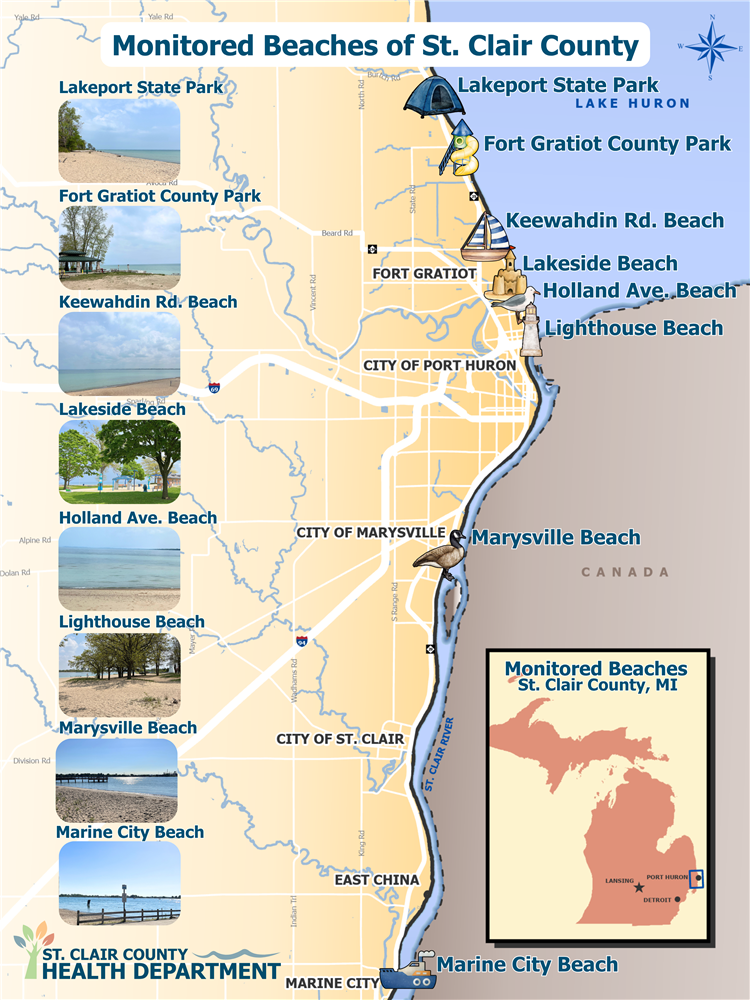Water Quality Tipline.png)
The St. Clair County Health Department makes it quick and easy for you to access accurate, real-time information about current water quality advisories. Check it out at:
24-hour Tipline - 877-504.SWIM or 987.7253
Facebook - St. Clair County Beaches
Web - www.egle.state.mi.us/beach
Smart Phone App - MyBeachCast
Why are beaches monitored?
Part 125 of Act 368, Public Acts of 1978, provides for testing and evaluation of public bathing beaches by local health departments. The St. Clair County Health Department monitors 8 beaches in St. Clair County weekly from Memorial Day to Labor Day. Samples are generally taken one foot below the surface in water that is approximately three feet deep.
What leads to a Water Quality Advisory?
The Michigan Public Health Code sets standards that limit the levels of E. coli at beaches called Total Body Contact Standards. A beach has a Water Quality Advisory whenever these standards are exceeded. Many sources can transfer bacteria and pathogens into water. Beaches may issue advisories after a heavy rainfall because bacteria are washed into the lakes and rivers through stormwater runoff.
What is Escherichia coli (E. coli)?
E. coli bacteria are common microbes found in the digestive tracts of warm blooded animals, including humans. The number of E. coli colonies in the water is an indicator of water quality. Contact with contaminated water, especially ingestion, can lead to illness.
St. Clair County Public Beaches
| Beach | Location |
| Lakeport State Campground | Lake Huron |
| Fort Gratiot County Park | Lake Huron |
| Keewahdin Road Beach | Lake Huron |
| Lakeside Beach | Lake Huron |
| Holland Road Beach | Lake Huron |
| Lighthouse Beach | Lake Huron |
| Chrysler Beach | St. Clair River |
| Marine City Beach | St. Clair River |

Keep Our Beaches Healthy!
Common sources of E. coli come from animal waste, malfunctioning septic systems, and storm drains. When it rains, storm water becomes infected with pollutants and bacteria which contaminate our beaches. Here are easy ways you can help keep our water clean and beaches healthy!
Waterfowl - Don’t feed the geese, ducks or gulls. If you feed them on the beach, they go on the beach. Their waste contains E. coli bacteria.
Pets - Clean up after your pet and immediately dispose of the waste in the trash. Pet waste contains E. coli bacteria too.
Litter - Place litter, including cigarette butts and grill ashes, in trash cans.
Storm Drains - Never place anything down a storm drain, including litter, leaves, fertilizer, oil, or chemicals. Remember, only rain in the drain!
Learn more about keeping our beaches healthy by viewing the Seven Steps for Cleaner Water. Visit the Michigan EGLE Beach Guard website for information on Michigan beach water quality sampling results and beach advisories and closures.